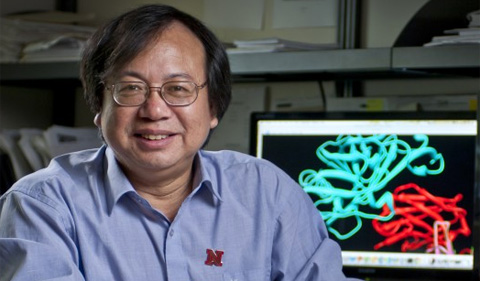Ohio University’s Chemistry & Biochemistry Colloquium Series presents Dr. Jacob Ciszek on “Increasing the Viability of Organic Semiconductors via Reacted Monolayers”, on Monday, Oct. 8, from 4:10 to 5 p.m. in Clippinger 194.
Ciszek is Associate Professor of Chemistry at Loyola University Chicago.
Abstract: The last decade has seen explosive growth in the both the materials and processing of organic semiconductors. Relatively ignored is the surface of the organic semiconductor, though the surface properties are central to function in devices. We have recently developed the ability to chemically functionalize the surface of organic semiconductors to form a monolayer not dissimilar to those found on other classic substrates. Specifically, we can tailor the surface of the acene class of organic semiconductors (tetracene, pentacene, rubrene) using the Diels-Alder reaction, where the adsorbate is dosed in via the vapor phase and bonds at the surface. Though successful, the naivety of the approach stood to in contrast to the rich complexity of the organic system and the substantial deviations organic surfaces displayed, in contrast to their inorganic brethren. This talk summarizes many of the expected and unexpected deviations which occur due to the very different nature of the organic crystal, namely its high anisotropy, recessed reaction loci, and weakly bound molecular units. From these experiments, we begin to assemble a mechanistic understanding of how reactions at organic surfaces occur. This chemistry is then applied towards improving the metal on semiconductor contact. As a demonstration of principle, Diels-Alder chemistry is utilized to form covalent bonds linking the organic semiconductor with a deposited metal contact thereby eliminating the poor adhesion present in this system. Application of the chemistry towards contact potential shifts concludes the talk.
The host is Dr. Jixin Chen, Assistant Professor of Chemistry & Biochemistry at Ohio University.




















Comments